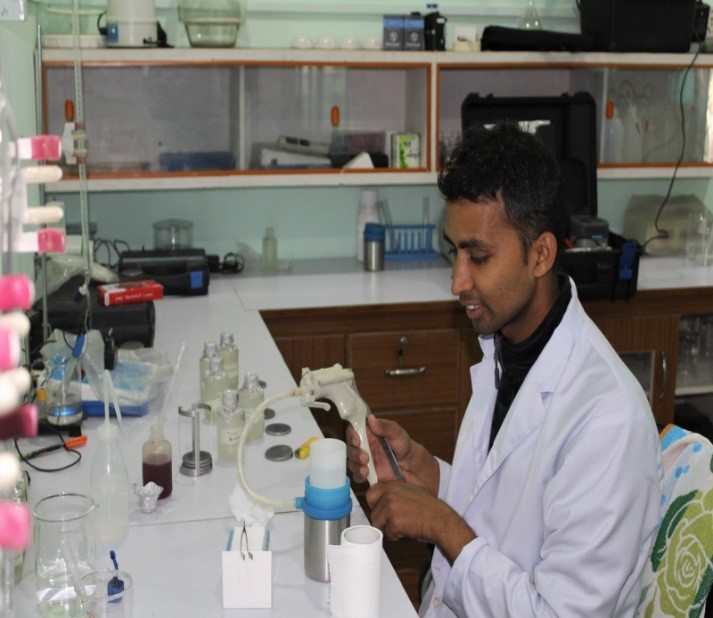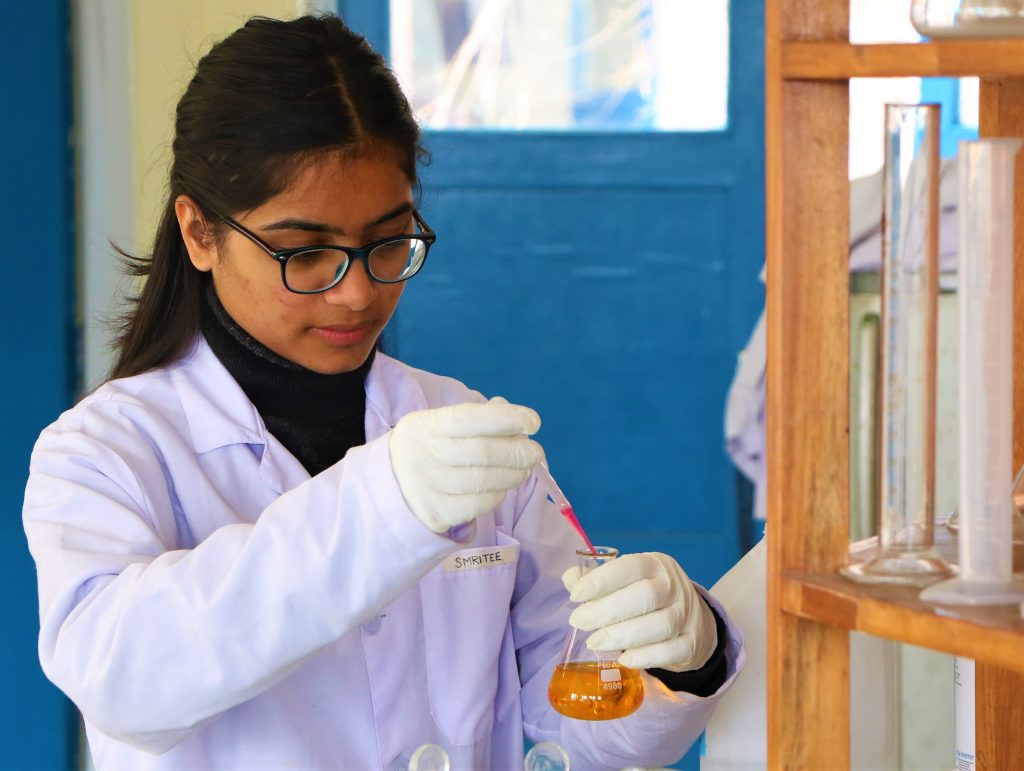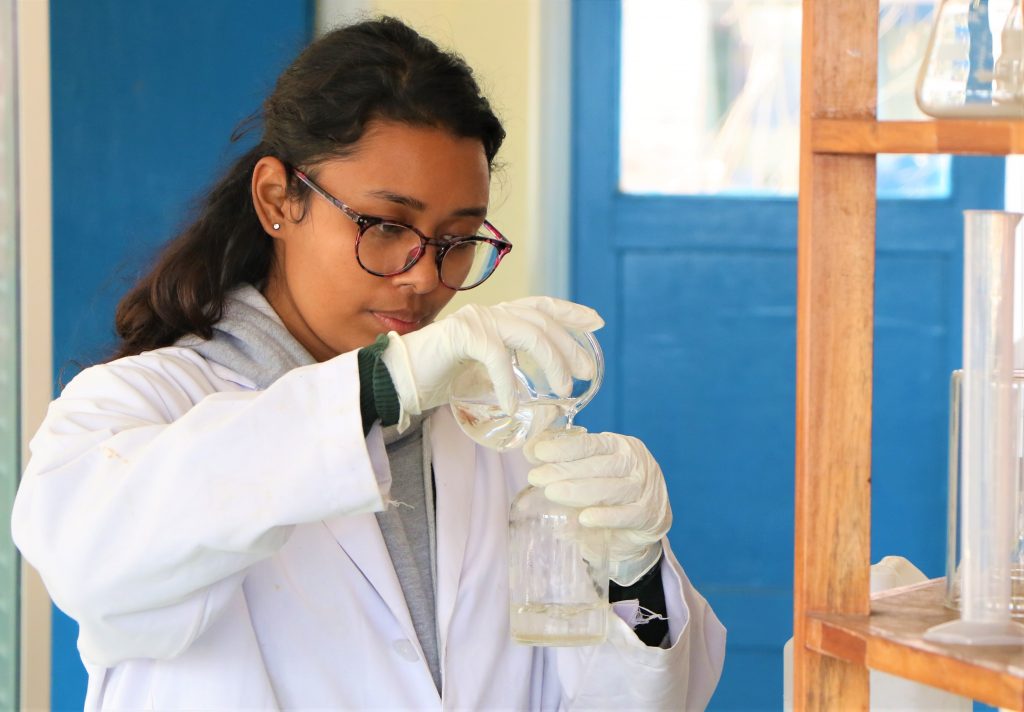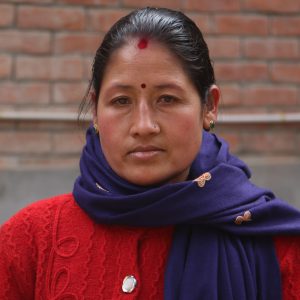Researchers and Staffs

Dr. Ram Devi Tachamo Shah
Researcher/Co-Investigator
Education: PhD, Goethe University, Frankfurt, Germany
Current Research: Long-term biodiversity assessment, development of holistic environmental flows
Interest: Bi- assessment and monitoring, Environmental flows, Freshwater ecology, Climate change, Species distribution modelling

Mr. Moti Poudel
Project Coordinator
Ph.D. Scholar, Kathmandu University, Nepal
Education: M.Sc. Environment and Natural Resources, KU
Current Research: Developing indicators to measure the resilience of water sanitation and hygiene (WASH) to climate change in Nepal
Interest: Climate change, Drinking water quality, Indigenous approach to cope with climate change, waste management

Mrs. Prativa Poudel
PhD. Scholar, Kathmandu University
Education: M.Sc. Environment and Natural Resources, Kathmandu University
Current Research: Sanitation and climate: Assessing resilience and emissions (SCARE)
Research Interests: WASH and Climate change, Climate resilience, GHGs emissions

Mr. Suman Prakash Pradhan
Research Associate and Project Coordinator
Education: M. Sc. Environmental Science (2020-2022), Kathmandu University
Roles and Responsibilities: Fieldworks, lab works, analytical works, data analysis, reports preparation, and manuscript preparation
Current Research: Assessment of Lichens as a bio-indicator of pollution; alternation in physiochemical response, gene expression, metabolomics, and biochemical activities of Lichens
Research Interests: Plant ecology, Medicinal plants, Analytical techniques, Aquatic ecology, Geospatial Science, Soil ecology, Microbial ecology, and Natural product chemistry

Ms. Smritee Subedi
Research Assistant
Education: B.Sc. Environmental Science, Kathmandu University
Roles and Responsibilities: Field works, Data analysis, Report preparation, Lab works
Research Interest: Rainwater harvesting, Drinking water quality, Gender and climate change, Urban environment and sustainability

Mr. Bishal Lamsal
Research Assistant
Education: B.Sc. Environmental Science, Kathmandu University
Roles and Responsibilities: Field works, Data analysis, Report preparation, Lab works
Research Interest: Soil quality, Forest and Plant ecology, Wildlife

Ms. Sarana Tuladhar
Research Assistant
Education: B.Sc. Environmental Science, Kathmandu University
Roles and Responsibilities: Field works, Data analysis, Report preparation, Lab works
Research Interest: Water resources and ecology, WASH, Wastewater (waste to energy), Climate change, Pollution
Administrative Staffs

Mrs. Sangita Maharjan
Position: Project Administrative Staff
Email: sangita.maharjan@ku.edu.np
Education: Bachelor of Business Administration
Roles and Responsibilities: Financial works of projects and reporting
Experiences: Six years and five months experience as administrative assistant in Kathmandu University project finance.

Mrs. Sarswoti Thapa
Position: Project supporting staff
Roles and Responsibilities: Office help
Alumni
- Sikha Karki (September 2010 to 2011)
- Urshula Bajracharya (September 2010 to 2011)
- Ayush Joshi Gyawali (September 2011 to 2014)
- Anisha Tuladhar (September 2011 to 2012)
- Asmita Poudel (September 2012 to August 2013)
- Saroj Thapa (September 2012 to August 2013)
- Rupesh Subedi (July 2013 to 2014)
- Nisha Gautam (July 2013 to 2014)
- Suman Acharya (July 2014 to 2016)
- Sumitra Paudel (July 2014 to 2015)
- Jhuna Katel (August 2015 to 2016)
- Shova Shrestha (August 2015 to 2016)
- Sindhu Karki (August 2015 to 2016) M.Sc. Environment and Natural Resources, KU
- Bibek Shrestha (2018 to 2019) B.Sc. Environmental Science, KU
- Samikshya Chhetri (2018 to 2019) Sc. Environmental Science, KU
- Anu Rai (2018 to 2019) B.Sc. Environmental Science, NAMI
- Nischal Devkota (2018 to 2019) B.Sc. Environmental Science, NAMI
- Tapasya Subedi (2019) B.Sc. Environmental Science, NAMI
- Nilisha Khadgi (2019) Sc. Environmental Science, KU
- Sheila Dangol (2021 to 2023)
